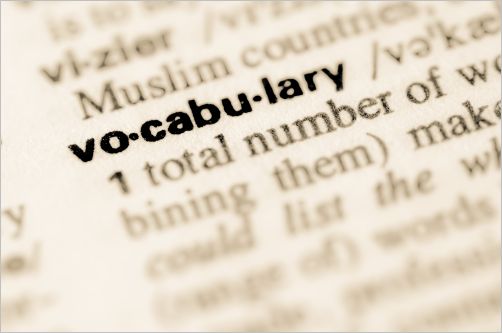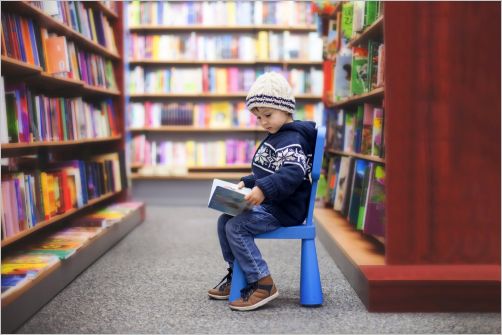Toddler Vocabulary
Toddler vocabulary is in constant flux, and is almost impossible to predict—your little boy or girl may learn a hundred new words in the course of a week, or he may add nothing at all to his vocabulary during those seven days. There are things you can do to encourage your toddler to expand his vocabulary, but you can’t force it. Every child’s mind develops at its own pace, and your little one may be making important discoveries in other fields while you are stressing about his inability to produce the word ‘climb’.
What to Expect in Toddler Vocabulary
At a year old, your new toddler is probably saying at least a few words—but they may be so garbled you can’t quite understand them. Still, he should be trying to communicate, and he will probably have a variety of sounds he uses to express himself.

At around eighteen months – a year and a half—many toddlers go into a ‘language spurt’ and their baby vocabularies suddenly expand at a ridiculously fast rate. By two years old, most toddlers will have discovered the labels that go with familiar day to day things and will be able to respond to simple commands and directions. Don’t be surprised if your child’s vocabulary is still poorly defined, though—calling all cars ‘trucks’ or every drink ‘water’ is perfectly normal at this age.
During his second year your toddler will become adept at putting words together to make two or three word phrases. His toddler vocabulary will keep increasing, and he’ll get more comfortable expressing finely nuanced ideas. Don’t expect your toddler to start understanding grammar till at least three, though.
By three or four years old your toddler should be able to chatter up a storm—when she wants to. There may still be some sounds she has trouble with, but most of the time a stranger will probably be able to understand her.
How to Improve Your Toddler’s Vocabulary

You can’t make your child talk, and you can’t set the secret codes that guide his intricately timed development. But you can make language easily accessible, and you can have his toddler vocabulary all cooked up and on his plate waiting for when he is ready to eat it up.
• Speak English, not baby talk. Cutesy words with diminutive endings might make you feel warm and sweet, but they won’t help your child learn how to communicate. Use simple language, but make sure it is good English.
• Repeat his words back to him—and make it better. When your toddler says “I milk” ask him “Would you like some milk?” If he sees a dog walking outside and shouts “dog, dog!” reply “Yes, the dog is walking”. Don’t ever repeat his mistakes, even if they are cute.
• Talk about what you see, what you do. Narrating what you see and do throughout the day will help your child put words to everyday sights and activities.
• Ask your child about any and everything, and give him a chance to answer. His answer might be garbled, hard to understand, or just one short word, but even so the opportunity to think about and respond to your words can give his vocabulary a big boost.
• Read to your toddler, and tell him stories—before bed, after you wake up, or just when waiting for a traffic light to turn at an intersection. Stories and poems are a wonderful way to expand your toddler's vocabulary, and they give your child’s grammar and imaginative skills a big leg up as well.
Have fun watching your toddler’s vocabulary grow and expand—these toddler years are truly magical years.
Leave Toddler Vocabulary return to Toddlers Speech
New! Comments
Have your say about what you just read! Leave me a comment in the box below.